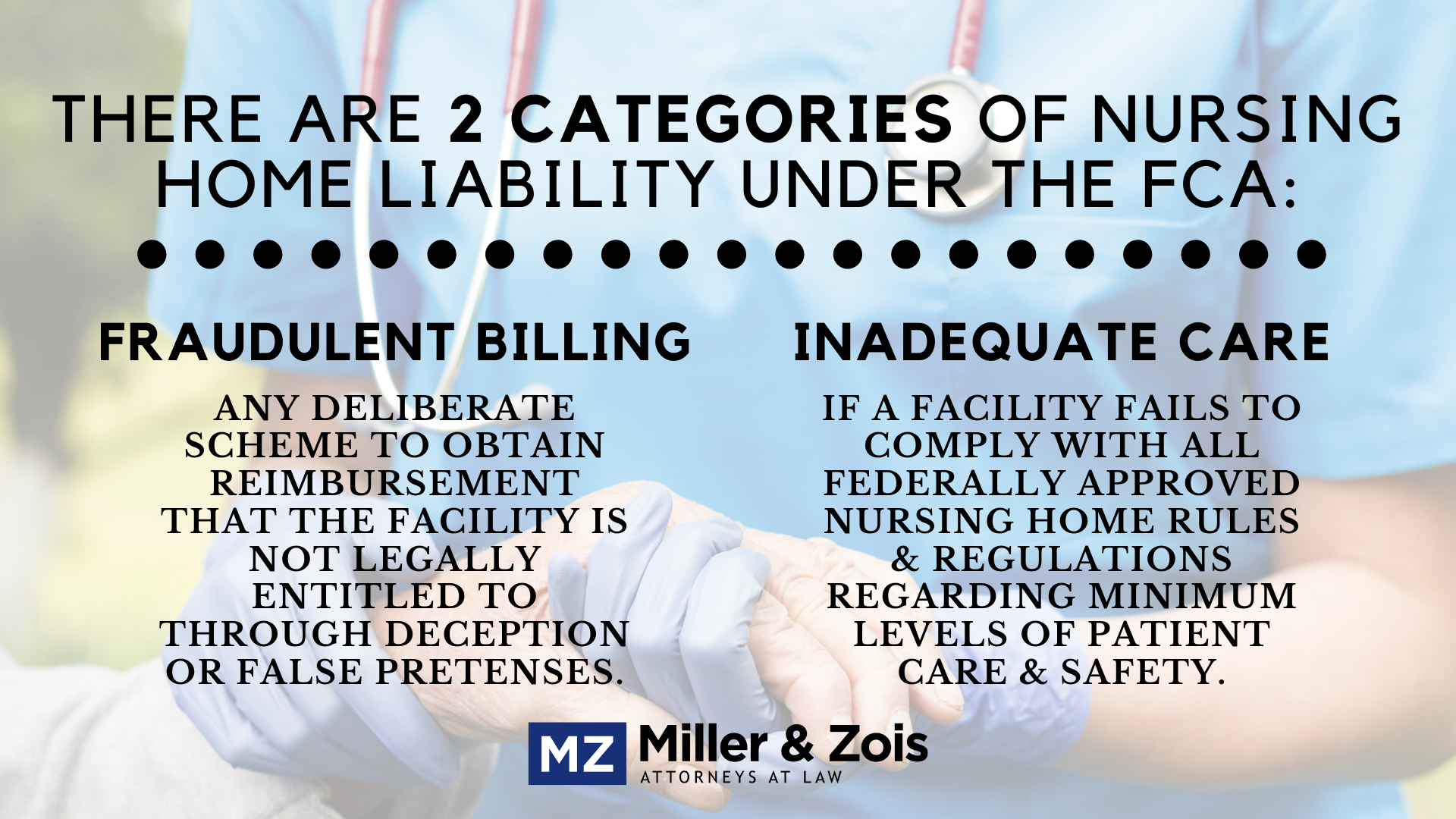Since shortly after I became a plaintiffs’ lawyer, I have been preaching that we need fundamental change in our nursing homes in this country. Profit drivers the train. These nursing homes need to be fixed. In ten years, we won’t believe what we as a society turned a blind eye to in 2020. Everything about the COVID-19 pandemic has enhanced this view.
If you have evidence that a nursing home or long-term care facility is providing grossly negligent care, overbilling, or engaging in other fraudulent practices, you can bring a whistleblower lawsuit and get a percentage of any money awarded in the case. Whistleblower plaintiffs in these cases are usually employees at the nursing home, but anyone with direct knowledge of fraud or neglect at the facility can potentially bring a case.
Nursing Home Liability Under the False Claims Act
Under a federal law called the False Claims Act (FCA), companies that receive money from the federal government can be subject to civil liability if they obtain that federal money through fraud or false pretenses. The FCA authorizes private citizens with knowledge of fraud to come forward and act as whistleblowers. FCA whistleblowers can become civil plaintiffs and file suit on behalf of the federal government. If the FCA lawsuit is successful, the private whistleblower plaintiff gets to keep up to 30% of whatever money is awarded.
Nursing homes and other elder care facilities receive a significant amount of their revenues from the federal government through Medicaid reimbursement. This means that nursing homes can be liable under the FCA if a whistleblower plaintiff can show that the facility received Medicaid funds improperly. If the whistleblower’s lawsuit is successful, he or she can recover money on behalf of the government and keep up to 30%.
Nursing homes can be held liable under the FCA for receiving Medicaid reimbursement (or other federal government funding) when the nursing home was not legally entitled to receive the funds. There are basically 2 categories of nursing home liability under the FCA: (1) fraudulent billing; and (2) inadequate care.
-
Fraudulent Billing
Nursing homes can be sued under the FCA if they knowingly engage in fraudulent billing practices to receive Medicaid reimbursement. Fraudulent billing by nursing homes involves any deliberate scheme to obtain reimbursement that the facility is not legally entitled to through deception or false pretenses. Nursing home billing fraud can come in many varieties and circumstances. Below are some more common fraudulent billing schemes at nursing homes:
- Upcoding: Upcoding is very common billing scheme in which the nursing home basically overcharges for services or treatment actually rendered. Typically, what happens is the facility provides a service or treatment to a patient and when they bill Medicaid for it they use a billing code for a different, more expensive procedure or treatment. EXAMPLE: doctors have 15-minute medication consults with patients which are billable to Medicaid at $250 but the facility regularly bills Medicaid for 30-minute consultations at $500.
- RUG: another common type of billing fraud is where a nursing home improperly classifies a patient in the highest Resource Utilization Group (RUG) to increase the level of reimbursement the facility gets for treatment.
- Medically Unnecessary Treatment: another very common way nursing homes defraud Medicare and Medicaid is by performing services or treatments on patients that are not medically necessary. This is done to increase revenues.
- Phantom Billing: in some cases nursing homes bill Medicare and Medicaid for patient treatments or services that were never actually provided to the patient.
- Kickbacks: another type of fraudulent nursing home practice involves providing or receiving illegal kickbacks in exchange for patient referrals or other types of medical decisions.
Nursing homes that engage in these types of fraudulent or deceptive billing practices cost the federal government an estimated $60 billion every year. If you have inside or direct evidence of a nursing home engaging in any of these fraudulent billing practices or otherwise getting improper Medicaid or Medicare reimbursement, you can become a whistleblower and brinan FCACA lawsuit.
-
Inadequate Care
Nursing homes can be sued under the FCA if the provide negligent or inadequate care to patients at the facility. These types of FCA cases are known as “false certification” cases. Here is a basic summary of how false certification cases for inadequate care at nursing facilities work.
All federally approved nursing homes are required to comply with various regulations and rules regarding minimum levels of patient care and safety. If a facility fails to comply with these requirements, they can potentially lose their approved status and no longer be eligible for federal program payments.
Each time an elder care facility requests reimbursement from Medicaid or Medicare, the facility must certify that it is fully compliant with all applicable regulations regarding patient care and safety. If the nursing home is blatantly ignoring those regulations but certifying that they are in compliance for the purposes of receiving, that is considered fraud. The facility is basically making a false claim in order to get money from the federal government. This is exactly the type of fraudulent conduct that whistleblower lawsuits can be based on.
If you have direct knowledge that a nursing home is providing negligent care in violation of federal health and safety regulations, you can become a whistleblower and bring an FCA lawsuit. If you have a potential claim, call me at 800-553-8082. You can also contact me online.
 Maryland Injury Law Center
Maryland Injury Law Center


